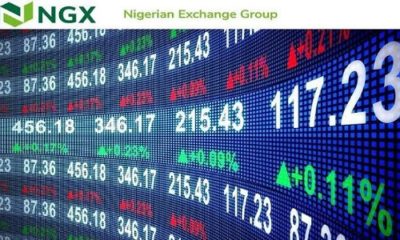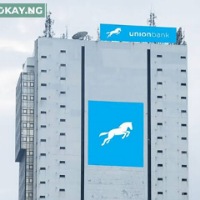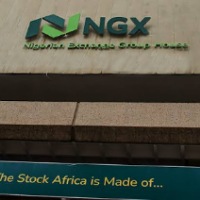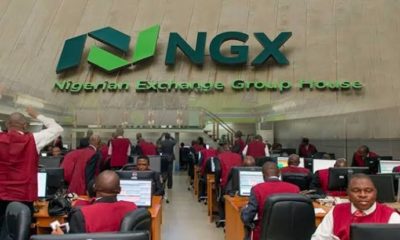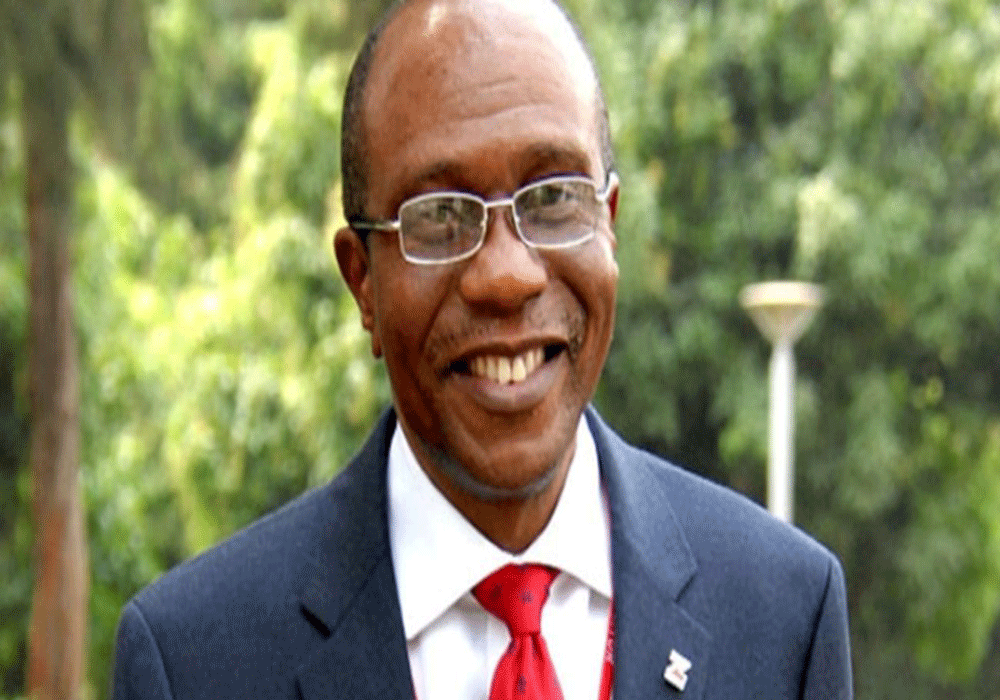Business
NGX, IFC Partner for Green, Social & Sustainability Bonds
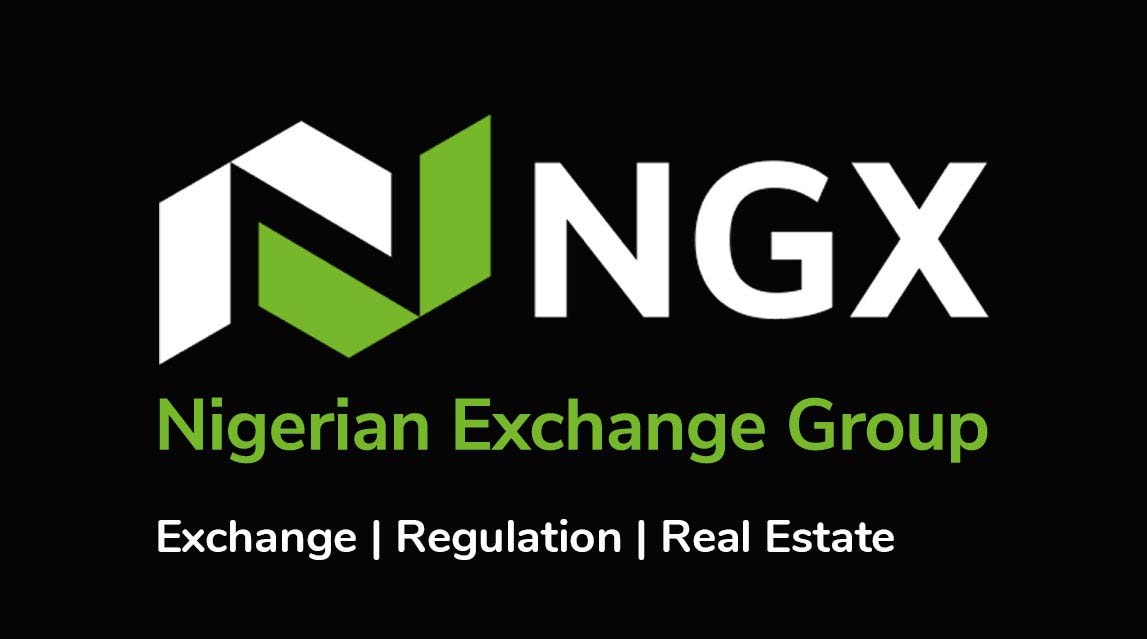
The Nigerian Exchange Limited (NGX), announced a partnership with the International Finance Corporation (IFC), for facilitating the issuance of green, social and sustainability bonds in Nigeria, aimed at increasing financing for projects that address climate and social issues.
The announcement was made on Wednesday, during a Green and Sustainability Bond workshop co-hosted by both institutions in Lagos, with the backing of HSBC Regio Fund and The Kingdom of Netherlands, according to a statement from the NGX.
Expectations are that through the partnership, NGX and IFC will facilitate knowledge sharing with market stakeholders and other exchanges in Africa experienced in issuing green and sustainability bonds, support the training and development of local verifiers for green bonds, and support the launch of a Sustainability Board.
The statement further avers that this would advance Nigeria’s green and sustainability bond development.
Biztellers reports that the workshop brought together domestic and foreign stakeholders including, regulators, policymakers, institutional investors, pension fund managers, and trading license holders, focusing on key topic areas including the World Bank Group’s experience in the field of green bonds; the role of NGX as infrastructure for issuance and subscription to green, social and sustainability bonds in Nigeria; general trends in green and social bonds and IFC’s experience in structuring and achieving these objectives.
Chief Executive Officer, NGX, Temi Popoola noted in his opening remarks that the African continent, according to the African Development Bank (AfDB), faced major risks and exponential collateral damage from global warming despite contributing the least to emissions.
He underpinned AfDB’s estimates that the continent required over $3 trillion of investments by 2030 to mitigate these risks and implement its Nationally Determined Contributions.
“In 2016, NGX conceptualized and developed the Green Bond Product Paper which was embraced and championed by the Debt Management Office (DMO) and the Federal Ministry of Environment.
This resulted in the issuance of the first N10.69bn (about $25.8m) 5-year green bond in 2017, and subsequently, the second tranche of N15bn (c. $36m) 7-year green bond in 2019 which was oversubscribed,” Popoola said.
According to the CEO, the green bond market had experienced substantial progress over the years with several sovereigns and corporate green bonds listed on the Exchange.
“These follow-on issuances have further increased investible instruments and deepened the Nigerian Green Bond market.
It is noteworthy that the size of the Green Bond market is currently N55.52 billion (c. $133.8 million).”
He mentioned NGX’s Memorandum of Understanding with the Luxembourg Stock Exchange to promote cross-listing and trading of green bonds in Nigeria and Luxembourg, of which Access Bank’s N15bn green bond was part.
Popoola also stated that NGX is a member of the United Nations Sustainable Stock Exchange initiative and supports capacity development and investor awareness through its X-Academy.
“NGX will continue to work with internationally recognised organisations such as IFC to share valuable green finance experiences and best practices, as well as to promote the development of sustainable finance market segments for supporting the government, policymakers, regulators, financial market participants, domestic and international thought leaders, investors, and other market stakeholders,” Popoola added.
Senior Country Manager for Nigeria, Sierra Leone, and Liberia, IFC, Kalim M. Shah said, “Nigeria will require billions of dollars to meet its climate goals, reduce carbon emissions and reach net-zero targets.
IFC continues to play a significant role in mobilizing private sector capital to support climate-smart investments, working with stakeholders to increase credible green, social, and sustainability bond issuances in Nigeria.
“We will bring IFC’s and the broader World Bank Group’s experience to the Nigerian capital market by supporting regulators, issuers, and exchanges on developing the framework, and socialization of green, social and sustainable bonds.
“Our partnership with NGX highlights the potential to increase climate financing, and we look forward to working together to support green bond issuances on NGX.”
Speakers at the event included Dr. Riccardo AMBROSINI, Regional Climate Finance Lead, IFC, Yasser MOUNSIF, Head of Corporate Finance, AMMC – Moroccan Capital Market Authority, Adriana CRUZ FELIZ, Vice President and Manager SPO team in EMEA Moody’s, James SEWARD, Capital Markets and Investment, World Bank Treasury, among others. Representatives from the Federal Ministry of Environment, the Securities and Exchange Commission, and the Debt Management Office also attended the event.
Business
Savannah Energy Provides Unaudited FY 2024 Trading Updates

Savannah Energy has shared a trading update on its Nigerian operations and other markets in Africa, including up-to-date cash collections in its Nigerian business.
According to the update, made available on Thursday in Lagos, its gross production in Nigeria averaged 23.1 Kboepd for FY 2024, broadly in line with the prior year’s 23.6 Kboepd, of which 88% was gas (FY 2023: 91%).
On the update, CEO of Savannah Energy, Andrew Knott, said, “I am pleased to provide a FY trading update which demonstrates the continued progress we have made in 2024, a year which saw the highest level of cash collections ever recorded by our Nigerian business. 2025 is expected to be an exciting year for our Company: we have a large planned operational programme in Nigeria which is anticipated to enhance both our oil and gas production levels and capacity; we intend to progress our R3 East oil development project in Niger; we continue to pursue key acquisitions in the upstream oil and gas space; and we continue to seek to build our power business.
“Fundamentally, Savannah remains unequivocally an “AND” company, seeking to deliver strong performance both for the short AND long term across multiple fronts, and pursuing growth opportunities in both the hydrocarbon AND power sectors.”
The update It also shows that it generated a Total Income of US$393.6 million in 2024, compared to FY 2023’s US$289.8 million. This consists of Total Revenues of US$258.7 million and Other operating income of US$134.9 million.
The report also shows that Savannah’s FY 2024 Total Revenues were ahead of the previously issued financial guidance of greater than US$245 million, while FY 2024 financial guidance is reiterated for Operating expenses plus administrative expenses at ‘up to US$75 million’. The company expects its FY 2024 capital expenditure to come in lower than planned (previously guided at ‘up to US$50 million’) due to the phasing of spend.
ALSO READ: CSR: Dangote Awards Scholarships To 473 Students
According to the update, Savannah’s cash collections in 2024 amounted to US$248.5 million, a slight increase from the US$206 million it received in 2023. The report further shows that its cash balances as at 31 December 2024 stood at US$32.6 million, compared to the 31 December 2023 figure of US$107.0 million.
The report shows that the company’s midstream subsidiary, Accugas Limited, had as at 31 December 2024 drawn down on its NGN332 billion of the NGN Transitional Facility, with the resulting funds being converted to US$, which, along with cash held, was used to partially prepay the existing Accugas US$ Facility, leaving a balance as at 31 December 2024 of approximately US$212.3 million.
The report also provided new updates on Accugas’ US$45 million Uquo Central Processing Facility (“Uquo CPF”) compression project in Nigeria, noting that its commissioning which will enable the expansion of gas production in the medium term is well underway.
The report highlighted the progress being made in the procurement process of long lead equipment in Nigeria for a potential two-well drilling campaign on the Uquo Field in H2 2025, with an additional gas development well expected to add up to 80 MMscfpd of supplemental production capacity and a potential exploration well targeting an Unrisked Gross gas initially in place (“GIIP”) of 154 Bscf (25.7 MMboe) of incremental gas resources.
The update shows that progress is also being made in the planned Savannah acquisition of Sinopec International Petroleum Exploration and Production Company Nigeria Limited, whose principal asset is a 49% non-operated interest in the Stubb Creek oil and gas field (“Stubb Creek”), with regulatory approval and completion being targeted in Q1 2025. Following the completion of the acquisition, Savannah intends to commence an expansion programme which is anticipated to increase Stubb Creek gross production from an average of 2.7 Kbopd in 2024 to approximately 4.7 Kbopd.
In Niger, Savannah continues to seek to progress its 35 MMstb (Gross 2C Resources) R3 East oil development in South-East Niger, while it continues to push for a potential alternative transaction structure to acquire a material stake in producing oil and gas assets in South Sudan as previously announced on 20 December 2024.
On the renewable energy front, the update shows that Savannah has up to 696 MW of renewable energy projects currently in motion, including the up to 250 MW Parc Eolien de la Tarka wind farm project in Niger and the up to 95 MW Bini a Warak hybrid hydroelectric and solar project in Cameroon. A firm believer in Africa’s transition to renewable energy, Savannah continues to target a portfolio of up to 2 GW+ of power projects in motion by the end of 2026.
Business
Nigeria Can Achieve 5.5% GDP Growth – NESG
The Nigerian Economic Summit Group (NESG) has projected that the country has the potential to achieve a 5.5% growth in Gross Domestic Product (GDP) if critical policy reforms are sustained.
This was disclosed on Thursday during the launch of the NESG’s 2025 Macroeconomic Outlook report.
Speaking at the event, the Chief Economist and Director of Research & Development at NESG, Dr. Olusegun Omisakin, highlighted the need for more efficient policy implementation to unlock Nigeria’s economic potential.
READ MORE: Davido Is Richer Than His Billionaire Father – Ibrahim Chatta Claims
“We believe at the optimal level, if we embark on more efficient policy reforms, the Nigerian economy has the potential, the GDP to end up at 5.5 per cent, and we believe that this is achievable,” Omisakin stated.
More to follow……….
Business
CBN Approves Release Of Nigerian FX Code
The Central Bank of Nigeria (CBN) has announced the release of the Nigerian Foreign Exchange (FX) Code, a set of guidelines designed to promote ethical conduct among authorized dealers in the country’s FX market.
In a statement, the apex bank disclosed that the official launch of the Code would take place on Tuesday, January 28, 2025, at the CBN Head Office Auditorium in Abuja.
READ MORE: Dangote Denies Culpability In Pumping Up Petrol Price
“The Central Bank of Nigeria has approved the release of the Nigerian Foreign Exchange (FX) Code as a guideline to the banking industry to promote the ethical conduct of authorised dealers in the Nigerian Foreign Exchange Market,” the statement read.
The introduction of the FX Code is expected to enhance transparency, accountability, and professionalism within Nigeria’s foreign exchange ecosystem, aligning it with global best practices.
The event is anticipated to attract key stakeholders in the financial and banking sectors, as well as representatives from authorized FX-dealing institutions across the country.

